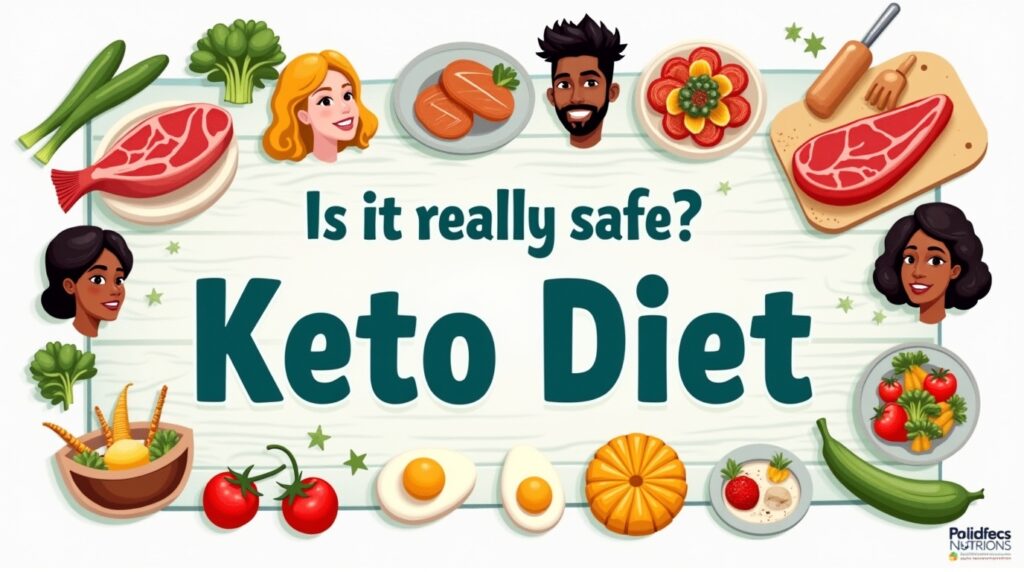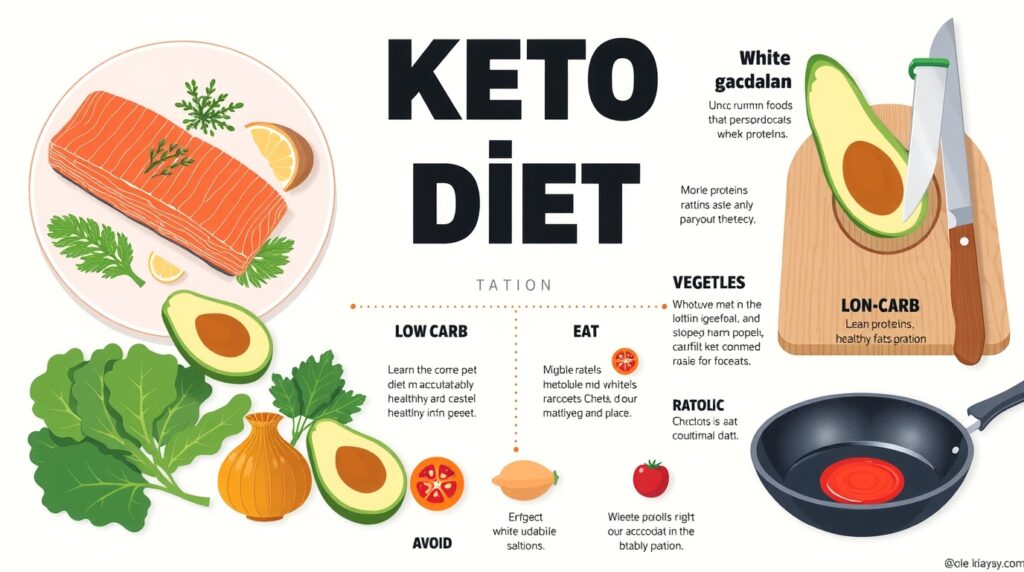
In recent years, the Keto diet has become one of the most popular trends in the world of weight loss and healthy living. Celebrities, athletes, and health enthusiasts all seem to be talking about it. But what exactly is the Keto diet — and more importantly, is it really safe for everyone? Let’s take a closer look.
What is the Keto Diet?
The Ketogenic (Keto) diet is a low-carbohydrate, high-fat eating plan designed to put your body into a state called ketosis. In ketosis, your body stops relying on glucose (sugar) from carbs for energy and instead starts burning fat as its primary fuel source.
To achieve this state, you typically eat:
- 70–75% fats (avocados, butter, nuts, olive oil, fatty fish)
- 20–25% protein (chicken, eggs, paneer, tofu)
- 5–10% carbohydrates (mostly from vegetables and small portions of fruits)
When your carb intake drops significantly (usually below 50 grams per day), your liver produces ketones — molecules that serve as an alternative energy source for the brain and body.

How Does It Work for Weight Loss?
The Keto diet helps with weight loss mainly by:
- Reducing appetite — High-fat meals are more satisfying, helping you eat fewer calories.
- Burning stored fat — Since carbs are limited, your body turns to fat for energy.
- Improving insulin sensitivity — It may help stabilize blood sugar levels and reduce fat storage.
Many people experience rapid weight loss in the first few weeks, mostly due to water loss followed by fat loss over time.
Potential Benefits of the Keto Diet
- Weight loss: Quick and effective for many people.
- Improved energy and focus: Ketones are a steady energy source for the brain.
- Better blood sugar control: Helpful for some people with type 2 diabetes.
- Reduced hunger: High-fat foods keep you full longer.
Possible Side Effects and Risks
While the Keto diet can deliver impressive results, it’s not without risks. Common side effects include:
- Keto Flu: In the first week, some people experience fatigue, headache, nausea, and irritability as the body adapts to ketosis.
- Nutrient Deficiency: Cutting out carbs can reduce intake of essential vitamins, minerals, and fiber.
- Digestive Issues: Constipation or stomach discomfort may occur due to low fiber intake.
- Heart Health Concerns: Eating too much saturated fat can raise cholesterol levels.
- Not Sustainable Long-Term: Strict carb restriction can make it difficult to maintain socially and mentally.

Who Should Avoid the Keto Diet?
The Keto diet is not recommended for everyone. People with the following conditions should consult a doctor before starting:
- Liver or kidney disease
- Type 1 diabetes
- Pancreatic problems
- Eating disorders
- Pregnant or breastfeeding women
Is the Keto Diet Really Safe?
In short, the Keto diet can be safe for short-term use under professional supervision, especially for weight loss or medical conditions like epilepsy or insulin resistance.
However, long-term safety is still debated. It may increase the risk of nutrient deficiencies, heart problems, or poor digestive health if not properly balanced.

Final Thoughts
The Keto diet can be a powerful tool for losing weight and improving metabolic health, but it’s not a one-size-fits-all solution. The key to success is balance, variety, and professional guidance.
If you plan to try the Keto diet, consult a doctor or nutritionist first. They can help you design a safe, personalized plan that fits your body’s needs — without putting your health at risk.